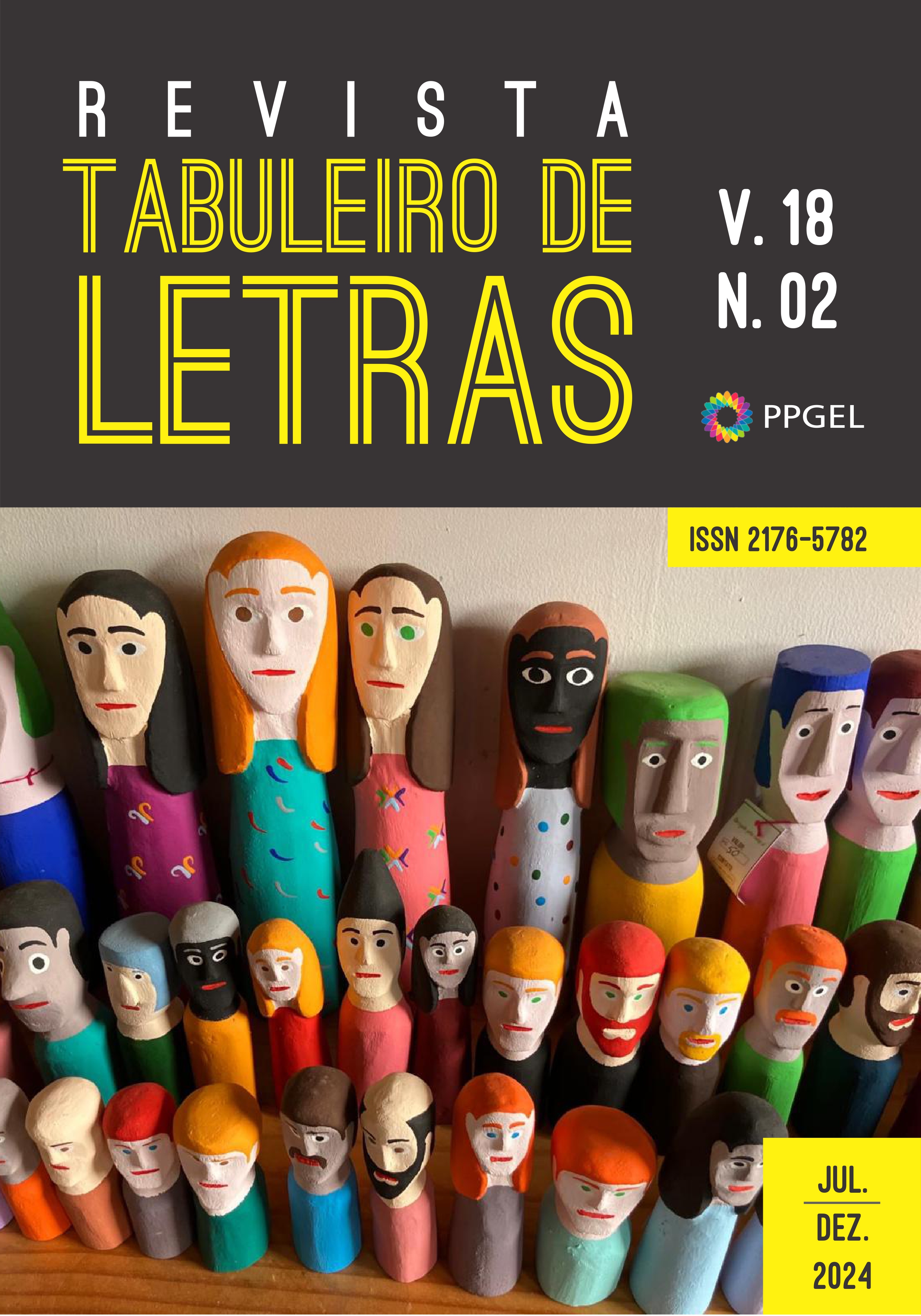Social Networks as pedagogical operationalizers:
between the pitfalls and functionalities of multimodality
DOI:
https://doi.org/10.35499/tl.v18i2.21921Abstract
ABSTRACT:
Between benefits and harms, the emergence of social networks has undoubtedly revolutionized communicative relationships at this time, providing the intersection between text, image, audio and video in a multimodal communicative process. In this scenario, considering the educational context, the fragmentation and speed with which information is consumed generate significant impacts on the ability to read, write and understand messages among new generations. The objective of this article is to analyze how social networks as pedagogical operationalizers have impacted text interpretation skills – from the simplest to the most complex – within the school space. To this end, it was verified in recent literature – including books and articles – which are the main pedagogical functionalities of multimodals and the challenges to be faced by educators and students. As a result, literature was found that, at the beginning of this century, highlighted the dangers of excessive and unsupervised use of social media – cognitive overload, superficialization of content, distraction, lack of focus, digital fatigue; others also point out that the amplification and enhancement of linguistic skills are feasible, in addition to protagonism and autonomy. It is concluded that, to combat informational superficialization and provide effective pedagogical functionality to digital platforms, it is essential that they are continuously supported by diligent information curation.
Keywords: Social Media. Linguistic competences. Multimodality. Information Curation.
Downloads
References
BATEMAN, J. A.; WILDFEUER, J. A Multimodal Discourse Theory of Visual Narrative. Journal of Pragmatics, n. 74, p.180-208, 2014.
CARR, N. Superficiais: o que a internet está fazendo com nossos cérebros. Rio de Janeiro: Agir, 2011.
CORNELLA, A. Cómo darse de baja y evitar la infoxicación en Internet. Extra!-Net. Revista de Infonomía, 1996.
DAWKINS, R. O gene egoísta. Oxford University Press, 1976.
EVANGELISTA, R. Infodemia e desinformação: ciência e ética na sociedade do espetáculo. São Paulo: Editora UNESP, 2022.
JENKINS, H. Cultura da Convergência. São Paulo: Aleph, 2009.
JEWITT, C. Multimodal methods for researching digital technologies. In: PRICE, S; JEWITT, C.; BARRY, B. (orgs.). The SAGE handbook of digital technology research. SAGE: Los Angeles, 2013.
KENSKI, V. M. Educação e Tecnologias: o novo ritmo da informação. 8. ed. Campinas, SP: Papirus, 2012.
KRESS, G. Literacy in the new media age. London, New York: Routledge, 2010.
KRESS, G.; VAN LEEUWEN, T. Multimodal discourse: The modes and media of contemporary communication. London, New York: Arnold; Oxford University Press, 2001.
KURITA, S. Desenvolvimento de Emojis. NJTT DoCoMo, 1999.
LANKSHEAR, C. KNOBEL, M. New Literacies: every practices and classroom learning. 2. ed. Maidenhead: Open University Press, 2008.
LEMOS, A. Cibercultura: tecnologia e vida social na cultura contemporânea.8. ed. Porto Alegre: Sulina, 2020. (Coleção cibercultura)
LÉVY, P. Cibercultura. São Paulo: Editora, 1999.
LORENZO, E. W. C. M. A utilização das redes sociais na Educação: importância, recursos, aplicabilidade e dificuldades. Rio de Janeiro: Editora Clube de Autores, 2013.
McCULLOCH, G. Por causa da Internet: entendendo as Novas Regras da linguagem. São Paulo: editora Seoman, 2019.
MORAN, J. M. A integração das tecnologias na educação. In: MORAN, J. M. A educação que desejamos: novos desafios e como chegar lá. Campinas: Papirus, 2014.
PINTO, L. F. C.; PEREIRA, P. V. S. O uso das redes sociais como ferramenta pedagógica interdisciplinar para a educação ambiental. In: MATTOS, F.; COSTA, C. S. (org.). Tecnologia na sala de aula em relatos de professores. Curitiba: CRV, 2016
PORTO, C.; SANTOS, E. Facebook e Educação: publicar, curtir, compartilhar. Campina Grande: EDUEPB, 2014.
RECUERO, R. Redes sociais na internet. Porto Alegre: Sulina, 2009.
SANTAELLA, L. Comunicação Ubíqua: repercussões na cultura e na educação. São Paulo: Paulus, 2013. (Coleção comunicação).
SANTAELLA, L. Navegar no ciberespaço: o perfil cognitivo do leitor imersivo. São Paulo: Paulus, 2014.
SAX, D. A vingança dos analógicos: coisas reais e por que elas importam. São Paulo: Editora Intrínseca, 2016.
SOUZA, M. R. De; CAMPOS, L. M. S. Estudo das competências leitoras no ambiente digital: a formação de leitores críticos no ensino superior. Revista FSA, v.11, n. 3, p. 77-92, 2014.
VALENTE, J. A. O computador na sociedade do conhecimento. São Paulo: Autêntica, 2005.
VAN DIJCK, J. A Cultura da Conectividade: uma história crítica das redes sociais. São Paulo: EDUSP, 2013.
WOLF, M. A mente no mundo digital: os efeitos da internet sobre nosso cérebro. São Paulo: Contexto, 2019.
ZUBOFF, S. A Era do Capitalismo de Vigilância: a luta por um futuro humano na nova fronteira do poder. Rio de Janeiro: Intrínseca, 2019.
Downloads
Published
How to Cite
Issue
Section
License
Autor(es) conservam os direitos de autor e concedem à Revista o direito de primeira publicação, com o trabalho simultaneamente licenciado sob a Licença Creative Commons Attribution que permite a partilha do trabalho com reconhecimento da autoria e publicação inicial nesta Revista.

















